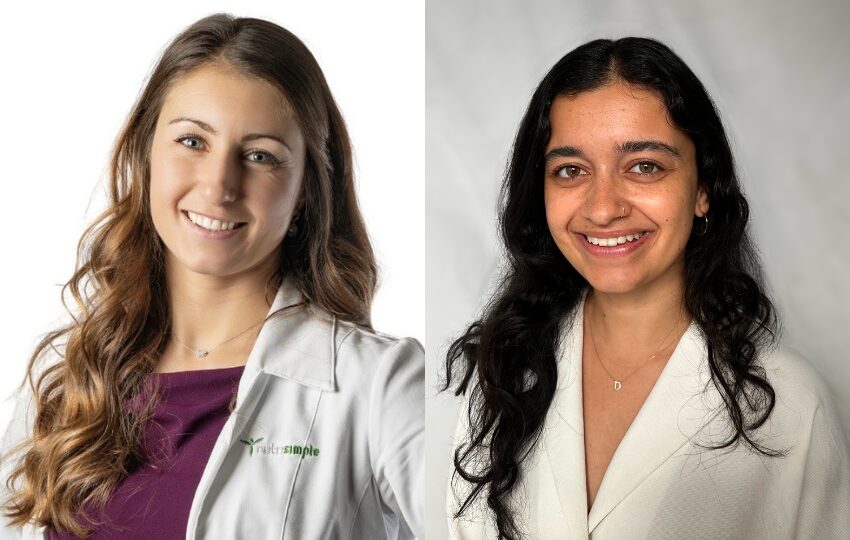
On April 3, after weeks of preparation, training and competition, McGill crowned two winners at the finals of its Three Minute Thesis (3MT) / Ma thèse en 180 secondes (MT180) event.
Manon Fantino, a PhD candidate in human nutrition, won the French-language competition, and Dominique Louër, a PhD candidate in communication sciences and disorders, won the English-language competition. Fantino will represent McGill at the concours ACFAS Ma thèse en 180 secondes, and Louër will compete at the CAGS 3MT Eastern regional finals.
3MT originated at the University of Queensland in Australia in 2008, challenging graduate students from all disciplines to distill their research into a three-minute geared toward a generalist audience. If that isn’t challenging enough, participants are limited to a single slide for their presentation.
This year, over 180 graduate students registered to take part in the McGill competition.
“[3MT] showcases the incredible talent and dedication of our graduate students,” says Mithura Sanmugalingam, a skills development officer at Teaching and Learning Services who oversees the McGill event in conjunction with Graduate and Postdoctural Studies. “Each year I’m amazed by our graduate students’ passion for their research, and their ability to communicate and connect with the community in such compelling and engaging ways.”
Can Instagram impact your eating habits?
Do we really have control over what and how we eat? That’s what Manon Fantino aims to discover.
Her talk, entitled ‘‘‘Je vois, donc je mange’ – Instagram,” focuses on factors that can influence dietary behaviour, such as genetics and our environment – including social media. Her thesis explores how brains react to social media content, particularly Instagram, which has the potential to constantly expose us to images of food.
“The impact on our eating behaviour can be subtle, but powerful,” said Fantino. “My research has the potential to identify factors in our environment that, depending on our genetics, push us to eat too much, or impulsively. This can help us improve nutritional treatments and personalize the recommendations we provide to patients.”
Can bilingualism protect your brain?
Good news for those who speak two or more languages: your skills can help you maintain cognitive health as you age.
Drawing from a multidisciplinary background in linguistics, psychology, and practical experience in various fields, Dominque Louër’s talk, entitled “Bilingualism’s Protective Effect on Aging,” explores the intersection of bilingualism, brain function, and aging.
“Whether you’ve grown up speaking two or three languages, or learned a language later in life, both are great for the brain,” says Louër. “My bilingual patients consistently outperform their monolingual counterparts, particularly excelling in the domains of language and memory.”
Additional finalists

Josephine Nalbantoglu, Dean of Graduate and Postdoctoral Studies and Associate Provost (Graduate Education), had the honour of announcing the winners at the April 3 finale. They included:
- Second prize: Michael Luo, MDCM-PhD candidate, Integrated Program in Neuroscience.
“Targeting glioblastoma at its root.” - Third prize: Dominique Lumley, master’s student, integrated program in neuroscience.
“Unravelling the enduring effects of child abuse on perineuronal nets.” - People choice award: Shamika Shenoy, PhD candidate in human genetics.
“Decoding immunity for future vaccines.”
A full list of McGill’s 3MT finalists, judges and organizers is available online.
An event recording can be viewed on YouTube.
